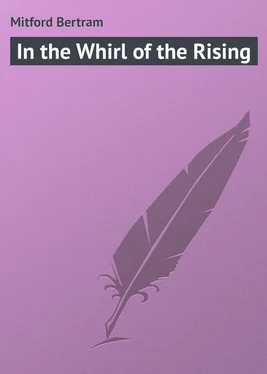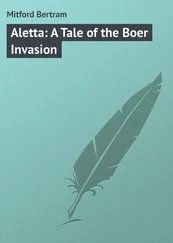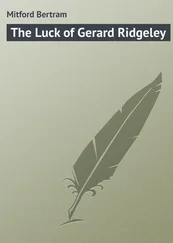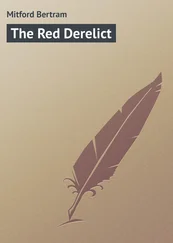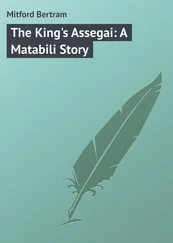Bertram Mitford - In the Whirl of the Rising
Здесь есть возможность читать онлайн «Bertram Mitford - In the Whirl of the Rising» — ознакомительный отрывок электронной книги совершенно бесплатно, а после прочтения отрывка купить полную версию. В некоторых случаях можно слушать аудио, скачать через торрент в формате fb2 и присутствует краткое содержание. Жанр: foreign_prose, на английском языке. Описание произведения, (предисловие) а так же отзывы посетителей доступны на портале библиотеки ЛибКат.
- Название:In the Whirl of the Rising
- Автор:
- Жанр:
- Год:неизвестен
- ISBN:нет данных
- Рейтинг книги:5 / 5. Голосов: 1
-
Избранное:Добавить в избранное
- Отзывы:
-
Ваша оценка:
- 100
- 1
- 2
- 3
- 4
- 5
In the Whirl of the Rising: краткое содержание, описание и аннотация
Предлагаем к чтению аннотацию, описание, краткое содержание или предисловие (зависит от того, что написал сам автор книги «In the Whirl of the Rising»). Если вы не нашли необходимую информацию о книге — напишите в комментариях, мы постараемся отыскать её.
In the Whirl of the Rising — читать онлайн ознакомительный отрывок
Ниже представлен текст книги, разбитый по страницам. Система сохранения места последней прочитанной страницы, позволяет с удобством читать онлайн бесплатно книгу «In the Whirl of the Rising», без необходимости каждый раз заново искать на чём Вы остановились. Поставьте закладку, и сможете в любой момент перейти на страницу, на которой закончили чтение.
Интервал:
Закладка:
This curiously effective specimen of a guardian angel lounged across to the fellow-countryman whose life he had saved, and gazed down at the latter.
“Near go!” he ruminated. “Near a one as this Johnny Raw ’ll ever have again. Why? ’Cause it couldn’t be nearer. Good-looking feller whoever he is, but – he needn’t know too much. Heave up – ho!” And laying hold of the heels of the savage he had first shot, he proceeded to haul the corpse of that assassin, to the accompaniment of very nautical-sounding cries, to a sufficient distance as to be invisible to the intended victim when the latter should wake to consciousness.
“No; he needn’t know too much,” he repeated, returning to the sufferer. “Now then, mister, wake up and have a pull at this.”
“This” being a substantial water-bottle. Presumably there was something magnetic in its inviting gurgle – for the hitherto unconscious man opened his eyes, stared, then half leaping up made a wild snatch at the bottle.
“ Gahle — gahle !” said the other, “and that means ‘no hurry.’ A little at a time is what’ll meet your case. Here you are;” and he filled him out a small measure. But so tremulous were the sufferer’s hands with eagerness and weakness combined that he spilled half its contents.
“That won’t do, sonny. This stuffs too valuable till we get clear of the mopani belt. Here – give it to me.” And he held it to the other’s lips.
“More – more.”
“No; that’s enough to go on with. Well – a little more, then. Now, pull yourself together and come along with me. What? Starving? Oh ay. Well, chew at this chunk o’ biscuit. It ain’t soft tack but it’s better than nothing, and I’m too old a sailor – prospector, I mean – to be navigating these seas without a shot in the locker.”
The other munched fiercely at the brown, uninviting bit of biscuit. His succourer looked approvingly on.
“That’s right,” he said. “Now we’ll serve out some more water. Then I’ll put you on my horse – he’s anchored t’other side of the sluit – and we’ll shape a course for my donkey-carts. They’re out-spanned on the road.”
“The road? Are we near the road?” stammered the other.
“Mile or so. But keep your tongue down, sonny, until we get there. You don’t want to talk a lot till you’ve had some proper skoff.”
Chapter Two.
A Pioneer Farm
The walls of the room were hung with dark blue “limbo,” which gave an impression of refreshing coolness and restful, subdued light, in grateful contrast to the hot, white glare outside. The furniture of the room was pre-eminently of the useful order, consisting of a plain ‘stinkwood’ table, three or four ditto chairs much the worse for wear, a sideboard consisting of two packing-cases knocked into one, a bookshelf, and a camp bedstead whereon now reclined the, at present, sole occupant and – in general – proprietor of the place.
He had been indulging in a siesta, which had run into hours. The naturally dark face was tanned a rich brown by the up-country sun and winds, and it was just the face that the up-country life would go to strengthen – with its firm eyes and square, determined chin. As now seen it was clear that the thoughts of its owner were not of a pleasant nature. Briefly, they might be summed up somewhat in this wise —
“Is that foolery destined to haunt me for the remainder of my natural life? I shut it down and turned my back on it more than a year ago – and yet, and yet, I can’t even take an afternoon snooze without dreaming all that idiocy over again.”
The jaded lassitude usually attendant on immediately awakening out of a day sleep to those who seldom indulge in one was upon this man. Moreover, the last vision of his dreams had been one of a lovely, reproachful face – a recollection of a bitter parting and love turned to hate; a rehearsal of the whole heart-breaking experience, reproduced with that vivid reality which a dream can infuse. All of which hardly conduced to a cheerful frame of mind.
“Wonder when Peters will be back,” ran on his reflections. “He said this evening. Peters is a most effectual antidote to the blues, and – By the way, there’s nothing much for skoff. I’d better take a look round ‘the poultry yard.’”
With a yawn he rose from the couch and stood upright. His erect, firmly-knit form was well set off by the prevailing costume of the country, namely, a light shirt, breeches and gaiters, and leather belt. He flung on the usual broad-brimmed cowboy hat, and, taking a gun and a handful of cartridges, stood in the doorway for a moment, looking forth.
The glare of the hot hours was already toning off into that exquisitely soft and mellow light, where afternoon merges into the African evening. He looked forth upon an expanse of park-like country, rolling away from his very door. Three or four great granite kopjes rose farther on, and, beyond these, a dark line, extending as far as the eye could reach, marked the margin of a vast forest tract. Taking a few steps forward he turned. Here an entirely different scene was before his gaze. Behind the rude house of plaster and thatch, from which he had just emerged, was a large circular enclosure, stockaded with mopani poles and thorny mimosa boughs, while another and smaller stockade, similarly constructed, enclosed several conical huts. He had laughed at his native servants when they had urged the necessity of building such a stockade. Lions? Hyenas? Why, no wild animal would venture inside a hut. Look at his own house. It was not stockaded. To which they had replied in true native fashion that that might be so. The Inkosi was a very great and powerful white man, but they were only poor helpless black men; and, moreover, that wild animals had been known to take people out of their huts. So he had laughed and let them have their way.
Such was Piers Lamont’s pioneer farm in Matabeleland. It had been granted him by reason of his services during the war of occupation in ’93, and he had sold it – for a song – when he wanted a run home. He had bought it back – very much on the same terms – a few months previously, on his return to the old up-country life.
“Ho, Zingela!” he called.
“ Nkose !” and a young native appeared from the enclosure containing the conical huts. He was tall and slim, and straight as a dart, and had a pleasing face.
“Come with me,” said Lamont, speaking the Sindabele very fairly; “I am going down to the river bank to collect a few birds for the pot. You shall carry them.”
“ Nkose !” sung out the boy with great heartiness.
The South African native is a born sportsman, and if there is a service congenial to him it is the participation, even vicariously, in any form of sport.
They strolled leisurely down among the tree-stems by the river bank. The francolin, or bush pheasant, whirred up out of the tall tambuti grass one or two at a time. Crack! crack! went the gun, and in less than half an hour Lamont’s cartridges, of which he had taken ten, were exhausted, and Zingela was carrying nine birds as they retraced their steps homeward.
“Cook them all, Zingela. The other Inkosi will be home to-night, and will be hungry.” Then as the boy, with a murmur of assent, withdrew, Lamont dropped into one of the cane chairs on the low stoep, beneath the projecting verandah of thatch, and lit a pipe.
The sun sank lower and lower, and the evening light became more golden and entrancing. It was an hour and a scene to promote meditation, retrospection, and he did not want retrospection. Still it was there. Like most things we don’t want, it would intrude. The influence of his recent dream was still upon him, and from it there was no getting away.
Читать дальшеИнтервал:
Закладка:
Похожие книги на «In the Whirl of the Rising»
Представляем Вашему вниманию похожие книги на «In the Whirl of the Rising» списком для выбора. Мы отобрали схожую по названию и смыслу литературу в надежде предоставить читателям больше вариантов отыскать новые, интересные, ещё непрочитанные произведения.
Обсуждение, отзывы о книге «In the Whirl of the Rising» и просто собственные мнения читателей. Оставьте ваши комментарии, напишите, что Вы думаете о произведении, его смысле или главных героях. Укажите что конкретно понравилось, а что нет, и почему Вы так считаете.
